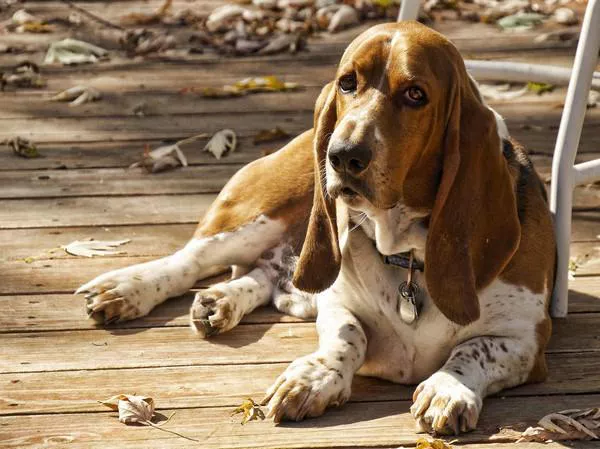Potty training your beloved basset hound is a crucial step in ensuring a harmonious and hygienic living environment for both your furry friend and your family. Basset hounds are known for their unique personality and characteristics, and with the right approach, you can effectively teach them where to relieve themselves. In this comprehensive guide, we’ll delve into the key aspects of potty training for basset hounds, covering essential tips, techniques, and insights to make the process as smooth as possible.
1. Understanding Your Basset Hound’s Behavior:
Before embarking on the potty training journey, it’s essential to grasp your basset hound‘s behavior patterns. Basset hounds are intelligent dogs, but they can also be a bit stubborn. They have a keen sense of smell, which can lead them to certain areas they’ve used before. To combat this, follow these steps:
Scheduling is Key: Establish a consistent feeding schedule for your basset hound. Regular meals can lead to more predictable bathroom breaks.
Supervision: Keep a close eye on your pup, especially after eating, drinking, or waking up. Look for signs like sniffing or circling.
Designated Potty Area: Create a specific potty spot outdoors. Take your basset hound to this spot every time you suspect they need to go.
2. Positive Reinforcement:
Positive reinforcement is a powerful tool in potty training. Basset hounds respond well to rewards and praise for good behavior. Here’s how to effectively use positive reinforcement:
Immediate Reward: When your basset hound successfully potties in the designated area, offer immediate praise, petting, and even a treat.
Consistency: Reward every time your dog eliminates outdoors. This consistency reinforces the connection between the behavior and the reward.
Avoid Punishment: Never scold or punish your basset hound for accidents. Positive reinforcement creates a more conducive learning environment.
3. Crate Training for Potty Success:
Crate training can play a pivotal role in potty training by utilizing your basset hound’s natural instincts. Follow these steps for successful crate training:
Appropriate Size: Choose a crate that’s large enough for your basset hound to stand, turn around, and lie down comfortably.
Positive Association: Make the crate a positive space with cozy bedding and toys. Avoid using the crate for punishment.
Routine: Establish a routine where your basset hound spends short periods in the crate, gradually extending the time.
4. Consistent Routine:
Consistency is key to any successful training regimen. Establishing a clear routine helps your basset hound anticipate bathroom breaks and reduces the likelihood of accidents:
Regular Walks: Take your basset hound for walks at the same times each day. This helps them release excess energy and prompts bathroom breaks.
Verbal Cues: Use a consistent command when you take your dog to the designated potty area, like “Go potty.” Over time, they’ll associate the command with the action.
5. Patience and Persistence:
Potty training takes time, and setbacks are normal. Stay patient and persistent throughout the process:
Accidents Happen: Don’t be discouraged by accidents. Clean the area thoroughly to remove any scent that might attract your basset hound back to the spot.
Avoid Rushing: Every dog is unique, and the time it takes to potty train can vary. Be patient and celebrate small victories.
Conclusion:
Potty training your basset hound is a journey that requires understanding, patience, and dedication. By following these expert tips and techniques, you can guide your basset hound toward potty success while strengthening your bond.
Common Queries Regarding Basset Hound Potty Training :
1. What’s the Urine-Holding Capacity of Basset Hounds?
The duration a Basset Hound can withhold urine varies based on factors like age, health, and size. Generally, adult Basset Hounds can hold urine for approximately 8 hours. However, providing frequent bathroom breaks is advisable, especially during ongoing potty training. Puppies, elderly dogs, and those with health issues might need more regular outings. Observing your dog’s behavior and cues is crucial to adjusting the potty schedule accordingly.
2. Do Basset Hound Puppies Urinate Frequently?
Indeed, Basset Hound puppies often urinate frequently due to their small bladder capacity and developing bladder control. Regular bathroom breaks and close supervision, particularly indoors, are important to prevent accidents. Training a Basset Hound puppy in potty manners might take more time, patience, and consistency compared to other breeds. Using positive reinforcement, like treats or praise for using the designated bathroom area, can effectively reinforce desired conduct.
3. Can Dogs Be Trained for Potty Habits at Any Age?
It’s never too late to train a dog in potty habits. However, older dogs may have established routines and behaviors that require more time, patience, and consistency during training. Even senior dogs can grasp using a designated bathroom spot with appropriate training and positive reinforcement. Recognize that each dog learns at its own pace, so employing a patient and gentle training approach is optimal.


